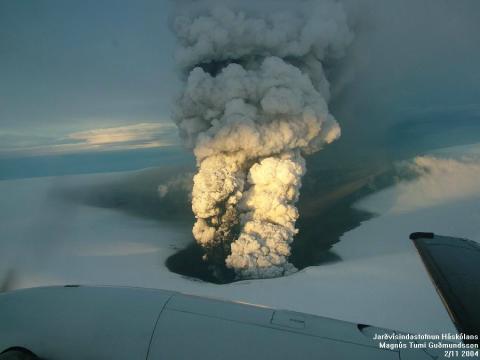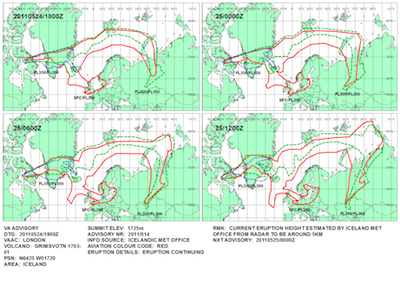
The amount of debris is just too massive. According to Dr. Ian Plimer, a noted scientist and climatologist in Australia, this eruption put up more CO2 than mankind has in the last 5 years combined. It's really huge.
There is a story that years ago the EPA complained to the government of Hawaii about the gas pollution from one of their volcanoes. On the last day of their session, the rather punch-drunk legislature passed an informal resolution -- if the EPA didn't like the volcano, they should go up the slope and put a cork in it.
Your nuclear winter comparison is excellent. That is how exactly how volcano weather works.
Last winter AND the winter before were volcano weather winters. In 2009 we had two large eruptions in the North Pacific - Mt. Redoubt in Alaska and Sarachev Peak in Russia. That is why the summer of 2009 was so wet and cool and the last two winters have been extreme. Last year's Iceland volcano, Eyjafjallajökull, was a problem for airplanes, but too small to enter the stratosphere. It crossed Europe and rained out in Russia and East Europe.
Unfortunately, this year's Grímsvötn was big, so it will create some problems, just as the impact of the 2009 volcanoes is beginning to fade.
- « Previous
- 1
- 2
- …
- 10
- Next »












Comments